The Fiery Fusion: Unwrapping the Secrets of New Mexico Green Chile
Have you ever tasted a pepper that can make your eyes water, your mouth tingle, and your soul sing all at once? If not, it’s time to meet New Mexico Green Chile—the crown jewel of Southwestern spice. Whether you're drizzling it over enchiladas or inhaling its smoky aroma from a paper bag at a roadside stand, this isn’t just a chili; it’s a cultural institution.
Table of Contents
- Introduction
- A Spicy Slice of History
- The Great Chile Divide: Hatch vs. Local Grown
- Heat Scale: From Gentle Whisper to Nuclear Blast
- Creative Ways to Use New Mexico Green Chile in Your Kitchen
- Cooking Like a Native: Tips for Roasting and Peeling
- Pairing Perfection: What Goes Well with Green Chile?
- Myth-Busting: The Truth About Green Chile and Health
- Beyond the Kitchen: How Green Chile Shapes Culture
- Conclusion
A Spicy Slice of History
If peppers had family trees, New Mexico Green Chile would be the eccentric uncle who started a revolution. This iconic chile has deep roots in the American Southwest, especially in New Mexico, where it's practically a state symbol (next to the roadrunner and turquoise jewelry).
Its lineage traces back to indigenous peoples like the Pueblo tribes, who cultivated early versions of these chiles long before the Spanish arrived. But it wasn’t until the 20th century that scientists at New Mexico State University began developing specific cultivars—like the famous ‘Hatch’ chile—to enhance flavor, heat, and size.
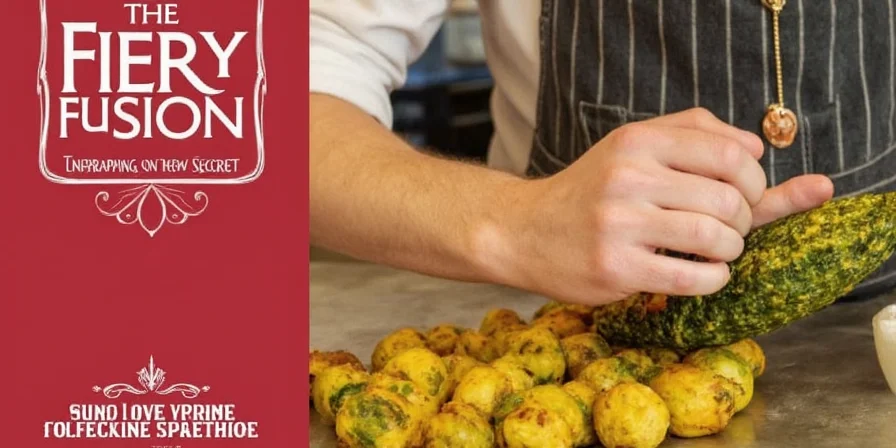
The Great Chile Divide: Hatch vs. Local Grown
You might have heard the name “Hatch” thrown around like a sacred chant. Hatch Valley, located along the Rio Grande in southern New Mexico, is considered by many to produce the best green chiles in the world. But here’s the thing: it’s not magic soil—it’s science and climate.
| Feature | Hatch Green Chile | Local New Mexico Varieties |
|---|---|---|
| Taste | Smokey, Nutty, Bright | Variably Sweet & Earthy |
| Heat Level | Mild to Medium-Hot | Mild to Very Hot |
| Growing Region | Hatch Valley, NM | Statewide |
| Seasonality | Late Summer to Fall | Late Summer to Early Winter |
Heat Scale: From Gentle Whisper to Nuclear Blast
The beauty of New Mexico Green Chile lies in its versatility when it comes to heat. Depending on the variety and growing conditions, you can get anything from a gentle tickle to full-on tongue inferno.
- Pod Type: Thin-walled, easy to roast
- Scoville Units: 500 – 30,000 SHU (varies widely)
- Common Varieties: Sandia, Big Jim, NuMex, and of course, Hatch
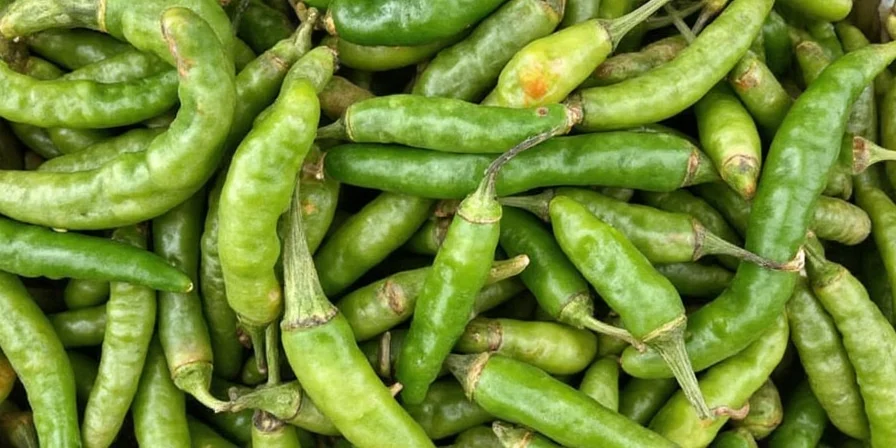
Creative Ways to Use New Mexico Green Chile in Your Kitchen
Don’t limit yourself to chile rellenos and enchiladas. Let’s get creative with how you can incorporate this bold flavor into everyday meals:
- Breakfast Boost: Stir chopped roasted chiles into scrambled eggs or fold into breakfast burritos.
- Chili Cheese Dip: Blend with melted cheese for an epic dip.
- Chile-Infused Oil: Infuse olive oil with roasted chiles for salad dressings or pasta drizzle.
- Pizza Power: Top your pizza with roasted chiles and mozzarella for a spicy twist.
- Dessert Surprise: Yes, really! Try it in chocolate sauces or brownie batter for a savory contrast.
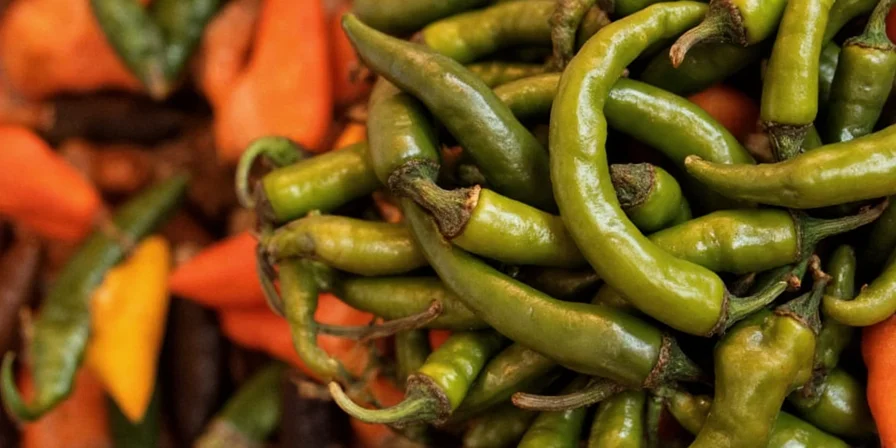
Cooking Like a Native: Tips for Roasting and Peeling
Roasting is not optional—it’s essential. Here’s how to do it right, whether you’re using an open flame or your oven.
Open Flame Method
- Use a gas burner or grill.
- Place whole chiles directly over flame.
- Turn frequently until blistered and blackened (about 5–8 minutes).
- Transfer to a bowl and cover with a towel for 10 minutes to steam.
- Peel under running water (optional) and remove seeds if desired.
Oven Method
- Preheat oven to 400°F (200°C).
- Spread chiles on a baking sheet.
- Roast for 20–25 minutes, turning halfway through.
- Same steaming and peeling steps as above.
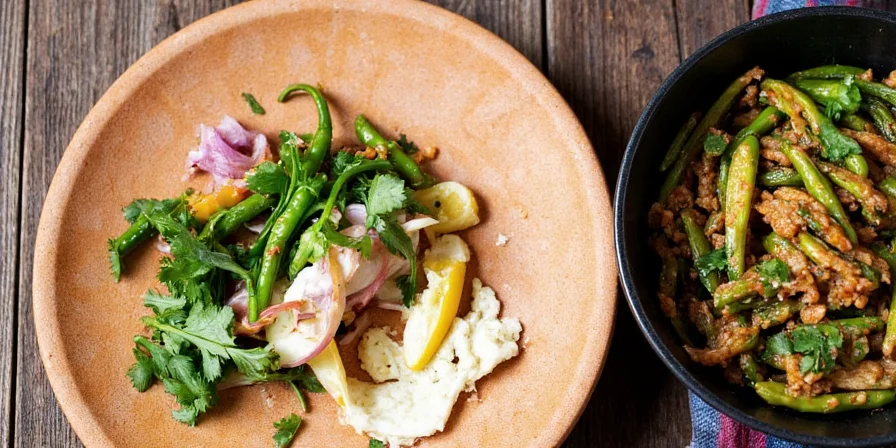
Pairing Perfection: What Goes Well with Green Chile?
Green chile is a team player. Its bright, acidic bite pairs beautifully with:
- Cheese (especially jack or cheddar)
- Pork (green chile pork stew is legendary)
- Eggs (see above breakfast ideas)
- Beans (refried beans + chile = heaven)
- Bread (think sopapillas or tortillas soaked in chile sauce)
Myth-Busting: The Truth About Green Chile and Health
Let’s separate fact from folklore when it comes to health benefits (and risks) of New Mexico Green Chile:
| Myth | Truth |
|---|---|
| Eating chiles causes ulcers | False – Capsaicin may actually protect the stomach lining |
| Spicy food speeds up metabolism | Partially true – short-term boost, but not significant for weight loss |
| Chiles are bad for your heart | False – studies show capsaicin supports cardiovascular health |
| Allergic reactions are common | Uncommon – most people experience irritation rather than true allergy |
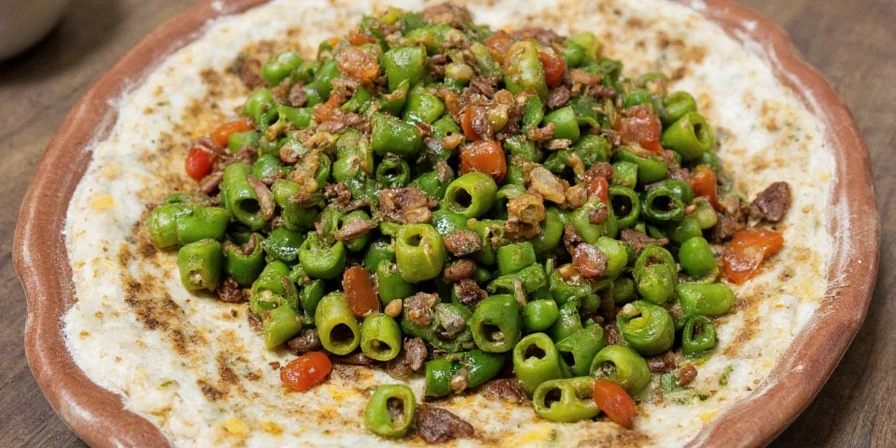
Beyond the Kitchen: How Green Chile Shapes Culture
In New Mexico, green chile isn’t just a food—it’s a lifestyle. You’ll find it referenced in bumper stickers (“Green Chile or Die”), celebrated in festivals, and even brewed into beer. It’s part of what makes the Land of Enchantment so enchanting.
- Farmers market stands roast chiles in giant rotating drums.
- Restaurants proudly advertise “Christmas” style—both red and green chile served together.
- Locals will fiercely defend their favorite region’s chiles.
Conclusion
New Mexico Green Chile is more than a pepper—it’s a flavor bomb, a culinary tradition, and a cultural phenomenon rolled into one. Whether you’re a seasoned pro or a curious newbie, there’s always something new to discover in the world of green chile.
So fire up the grill, grab a bag of fresh-roasted chiles, and let your taste buds take a trip to the Southwest. And remember: life’s too short for bland food!

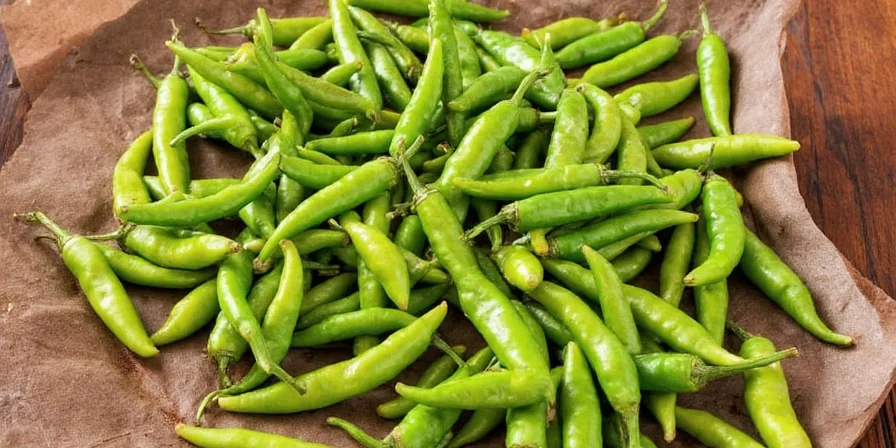









 浙公网安备
33010002000092号
浙公网安备
33010002000092号 浙B2-20120091-4
浙B2-20120091-4